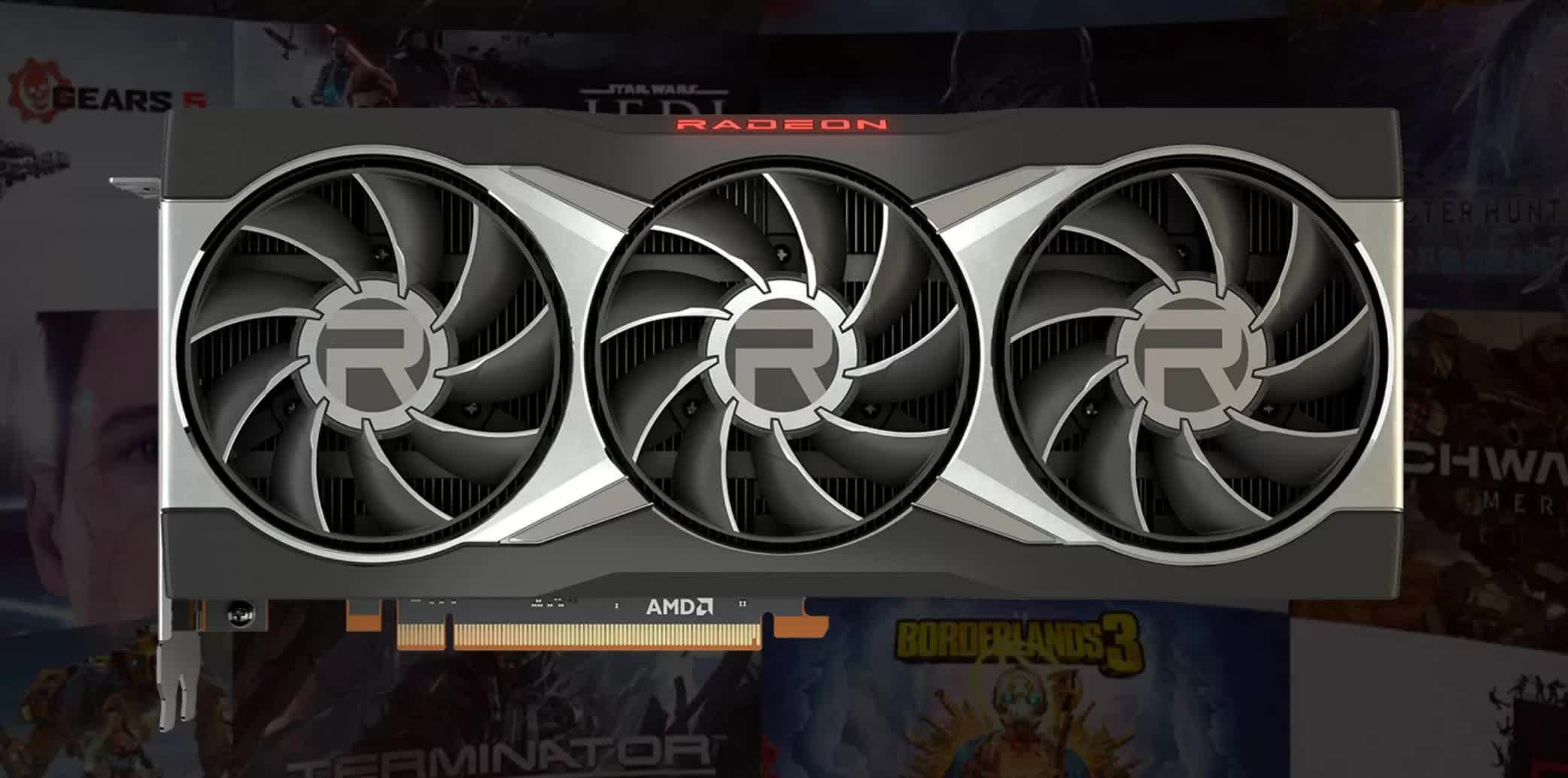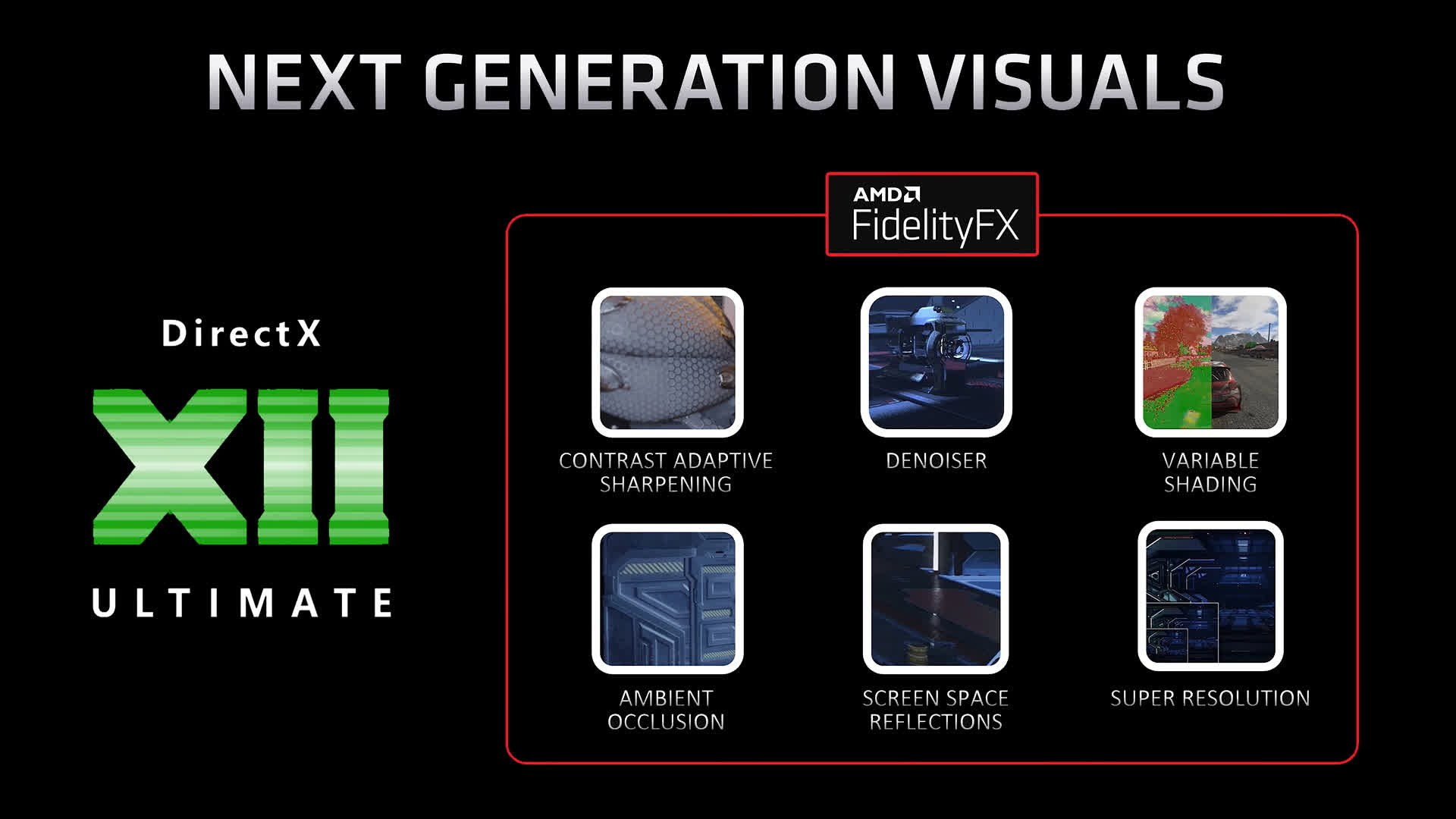Big quote: AMD has confirmed that FSR "FidelityFX Super Resolution" is coming this year to rival Nvidia's DLSS as a more open solution. According to AMD's VP of Graphics, FSR is "one of the biggest software initiatives we have internally, because we know how important it is that if you want to turn on ray tracing, and you don't want to (...) your GPU get hit so hard."
Nvidia's DLSS (Deep Learning Super Sampling) has earned appreciation from gamers, and for good reason – the second version of the technology produces some stunning results in terms of both image quality and incremental performance, especially in titles that have support for ray tracing. The DLSS ecosystem is growing with every passing month, which makes Nvidia's RTX graphics cards a compelling choice.
AMD has yet to bring an equivalent technology to Radeon GPUs, and while many have resorted to using a lower than native resolution in combination with Radeon Sharpening or FidelityFX CAS to achieve somewhat similar results, that's not an ideal nor equivalent solution. On the upside, those tweaks do not require involvement from game developers to add specific support for the super sampling technique and also works at all resolutions, unlike DLSS.
AMD has been working on FidelityFX Super Resolution (FSR), a technology that would work across several AMD Radeon GPUs including those found in the Xbox Series X/S and the PlayStation 5. Understandably, it's trying to get it right on both PC and consoles, so it wasn't ready in time for the launch of the Radeon RX 6000 series graphics cards, nor the new generation of gaming consoles.
During an interview with PC World, AMD's VP of the Graphics Business Unit, Scott Herkelman said that work on FidelityFX Super Resolution is "progressing very well internally." He also said that evaluating the quality of the upscaling algorithm will take a bit more time, but at the same time the company has made it a priority to debut FSR this year.

AMD typically puts some emphasis on making its technologies open and cross-platform, and FSR appears to be no exception. At the same time, it'd be wise for the company to learn from Nvidia's mistakes with DLSS, which wasn't successful until after a year after its debut and after a major overhaul to its approach.
Herkelman explained that AMD's FSR won't necessarily be based on machine learning, which should offer a glimmer of hope to a lot of gamers stuck with older Radeon cards. At least in theory, AMD is aiming to launch FSR for all compatible hardware in one go, so the new upscaling tech could very well be based on Microsoft's DirectML API. As exciting as all of this sounds, we'll have to wait and see how AMD's approach works in practice.
